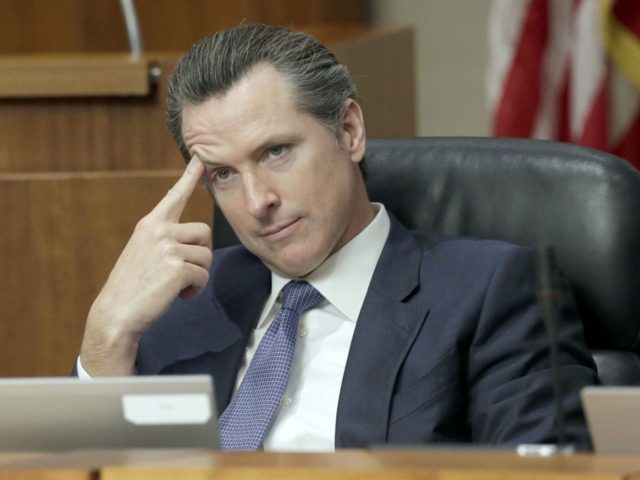WASHINGTON, DC – Late Friday the Supreme Court delivered two major victories for churches over state COVID-19 restrictions in California, blocking some of the restrictions that Democrat Gov. Gavin Newsom has imposed on houses of worship.
California has some of the most draconian restrictions on churches, treating them much worse than the embattled Newsom is treating most other businesses.
Two churches brought suit in federal court, arguing that this unfavorable treatment violates the churches’ rights under the Free Exercise Clause of the Constitution’s First Amendment to conduct their worship services consistent with their faith, or at minimum that this entitles them to be subject only to restrictions that other establishments must abide by.
In a 6-3 decision, the Supreme Court granted temporary relief, partially reversing contrary rulings from lower courts. The stay will remain in place while the Ninth Circuit finishes its consideration of the appeal and will continue until the churches have an opportunity to petition for full review and the Supreme Court decides whether to take up the case.
Six justices of the Court enjoined (i.e., blocked) California’s enforcing Newsom’s “Tier 1” prohibition on indoor worship services on these churches. However, the churches did not persuade a majority of the nine-justice Court to also block enforcement of all capacity caps, allowing the state to enforce a 25 percent limit on capacity at services that would apply to many businesses in the state, nor did they persuade a majority of the Court to block the state’s prohibition on singing in the church.
Chief Justice John Roberts doubled down on his previous statements denying relief to churches because “federal courts owe significant deference to politically accountable officials with the background, competence, and expertise to assess public health.” He voted to grant this partial injunction, however, because California’s decision not to allow a single worshiper in a “cavernous cathedral … appears to reflect not expertise or discretion, but instead insufficient appreciation or consideration of the interests at stake.”
Justices Clarence Thomas and Neil Gorsuch would have granted the injunction in full to provide all the relief the churches sought.
“Apparently, California is the only State in the country that has gone so far as to ban all indoor religious services,” Gorsuch wrote for himself and Thomas, noting that most retail businesses in the state were permitted to operate at 25 or 50 percent capacity. “When a State so obviously targets religion for differential treatment, our job becomes that much clearer.”
Justice Samuel Alito went almost as far, voting to grant an injunction to block all restrictions on capacity and singing, but would delay that injunction for 30 days to give California time to prove to the courts that the restrictions in churches are essential to stopping COVID spread. If California fails to provide such compelling evidence in the next 30 days, the injunction would go into place to lift Newsom’s restrictions.
Justice Amy Coney Barrett wrote for herself and Justice Brett Kavanaugh that she agrees with most of what Gorsuch wrote but was not voting to grant one of the churches – South Bay United Pentecostal Church – full relief, including lifting the ban on singing at this early stage because that church’s lawyers had not carried their burden of building a court record to show that restriction was not necessary for public health.
The three liberal justices voted to deny the churches any relief against the state government.
The applications are South Bay United Pentecostal Church v. Newsom and Harvest Rock Church v. Newsom, Nos. 20A136 and 20A137 in the Supreme Court of the United States.

COMMENTS
Please let us know if you're having issues with commenting.